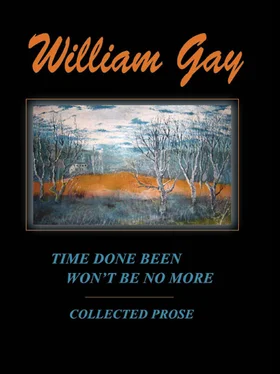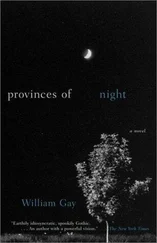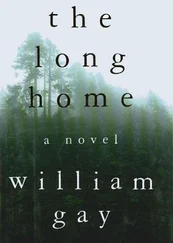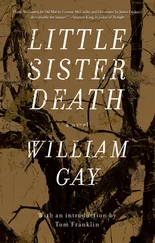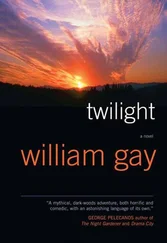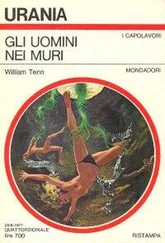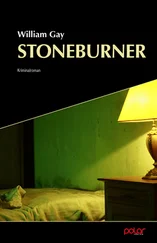Intentions here were good; the follow-through left much to be desired. The tapes languished for years in an attic, ultimately winding up in a garbage can. When they were discovered, only one salvageable reel of tape remained. (It was released on Prestige/Bluesville as Blind Willie McTell’s Last Session.)
He’d long suffered from diabetes, and complications from the disease brought on a stroke. He died in 1959 in the state hospital in Milledgeville, Georgia. When he was buried outside Thomson, his tombstone read: WILLIAM McTEAR.
So he never lived to see the 60’s, when the old blues giants were sought out and lionized, when necktied Yankees showed up on Mississippi John Hurt’s front porch and waited for him to come in from the field. He never worked the college circuit like Son House and Brownie McGhee and Sonny Terry. When he died, the great folk revival was still embryonic, the Kingston Trio in matching blazers were singing antiseptic versions of Appalachian ballads. Yet to be were Dylan, Elizabeth Cotton’s strung-upside-down guitar playing Freight Train on national television, Robert Johnson bubbling under Billboard’s Hot 100.
Blind Willie McTell was in the ground but his music wasn’t. Plunder his music and you’ll find the bones of other music not fleshed out.
Dylan, in particular, has been instrumental in keeping McTell’s music alive. He recorded respectful, loving versions of Delia and Broke Down Engine. Perhaps part of Dylan’s McTell attraction was the shifting personas, the Blind Sammies and Pig ‘n’ Whistle Reds. Dylan once recorded under the name of Blind Boy Grunt, and his own closets must be stuffed with masks he’s cast off and disguises he’s sent out to be altered again and again.
In 1983 Dylan wrote the ultimate eulogy, Blind Willie McTell, one of the most haunting songs, an impressionistic distillate of East Texas martyrs, Southern plantations burning, the ghosts of slavery ships.
Between the lines you can imagine Blind Willie McTell and Blind Willie Johnson working that Atlanta, Augusta, Macon, Savannah circuit, traveling the dirt roads in the darkness they are heir to, a quarter moon unseen over the trees, their guitar cases carried like credit cards that will get them a meal, a pallet on the floor, a woman’s smile they can feel rather than see, a poet’s voice forty years down the line that will sing: No one can sing the blues like Blind Willie McTell .
SITTING ON TOP OF THE WORLD
THE WEEK BEFORE MERLEFEST I went by to check on Grady, and he was putting a fuel pump on his RV. It was a huge RV so ancient it looked like something the Joads might have fled the Dust Bowl in, and something was always going wrong with it. Grady had skinned knuckles and a half-drunk beer and a home-rolled Prince Albert cigarette stuck to his lower lip that waggled when he talked.
He was not in the best of moods.
I don’t think I’m going to this one, he said. It’s got to where all this traveling around costs too much money. I believe I’ve about seen everything anyway.
I looked at the RV. It was emblazoned with hand-pained legends memorializing bluegrass festivals past. The Bean Blossom Festival, the Foggy Mountain Festival, MerleFest ‘96, ‘97, ‘98. Maybe he had seen everything. He told me about Dylan at the 1964 Newport Folk Festival, cracking a bullwhip and preening as the newly crowned King of Folk. Another time at Newport, his RV had been parked next to the one belonging to Mother Maybelle Carter. They had sat in lawn chairs and watched twilight come on, and she had shown him how to play the autoharp, placing his fingers just so to form the chords.
Grady told me a lot of things, but he had the goods to back it all up. The walls of the house he rented were papered with surrealistic collage of photographs of the high and the mighty, the late and the great: Bill Monroe, the Stanley Brothers, Flatt and Scruggs, Don Reno and Red Smiley. Grady was in a lot of the pictures. Bill Monroe was embracing him like a long-lost brother in one, and there were pictures of Grady’s own band, the Greenbriar Boys, skinny guys in Hank Williams suits standing before old-timey WSM microphones as if they were frozen back in the back and white ‘40s.
If you go, go up and talk to Doc Watson, Grady said.
I may. I always wanted to know where he got that arrangement for Sitting on Top of the World.
He got it off that old record by the Mississippi Sheiks.
I heard that record. That’s not the arrangement.
Well, hell. Just go up and ask him. Walk right up to him, he’ll tell you. He’s not stuck up like a lot of them are. He’s a hell of a nice guy.
Well, he’s blind. Maybe that makes him a little more approachable.
Grady didn’t want to hear it. A blind man can be a prick the same as anybody else, he said. He’s just a hell of a nice guy.
Early in the morning of October 23, 1985, Arthel Doc Watson received the worst news a father can get: His son was dead. Eddy Merle Watson had been plowing on a steep hillside when the tractor he was driving overturned and rolled on him.
It was a blow that Doc almost did not recover from. It was a blow that resonated on a number of levels: Aside from the incalculable loss of a child, Doc had lost a friend and a fellow musician. For a time it seemed he might even lose the music as well, because Merle and Doc and the music were inextricably bound together.
In 1964, when he was fourteen, Merle had learned to play guitar while his father was away. He had learned to play it so well that when Doc went back on the road, Merle went with him. That fall they played Berkeley Folk Festival, and he was all over the place on Doc’s next album, Southbound . They toured and recorded together for the next twenty-one years, right up to that morning in 1985.
Merle became a proficient blues guitarist, and some of the albums subtly reflect his love for the genre. But he could pick flattop guitar with the best of them, and he could frail the banjo in the style of country performers like Uncle Dave Macon. When he died he was a few days away from winning Frets magazine’s Bluegrass Picker of the Year award.
In what may be one of the few purely altruistic gestures in the music business, a handful of folks decided to do something. A friend of Doc’s, Bill Young, together with Townes and Ala Sue Wyke, approached Doc with a proposition. Townes is Dean of Resource Development at Wilkes Community College, in Wilkesboro, North Carolina, and the three of them convinced Doc to play a benefit concert on the campus. The funds raised would be used to create a memorial garden in Merle’s honor.
Doc agreed, and a few of Merle’s friends, including the banjoist Tim O’Brien, volunteered their time and ended up playing from the beds of two flatbed trucks.
That was the first MerleFest, in 1988. By contrast, the festival in 1999, while still held on the college campus, was a vast sprawl of tents and stages and concessions accommodating more than a hundred performers and over sixty-two thousand people in the audience.
There was not a flatbed truck in sight.
The first night of the festival was cold and rainy, but the performances went on inside tents, where hundreds of folding chairs were arranged in rows. When you came out of the tents, the wind would be blowing and the rain would sting your face, but nobody seemed to mind. Earlier there had been a little grumbling when the performer list had been released: Hootie and the Blowfish? Steve Earle? These were not the direct descendants of Bill Monroe. Earle had been touring with the bluegrass great Del McCoury, but there was a loose-cannon quality about him, and he was a lot more edgy and confrontational than, say, Ralph Stanley.
Читать дальше
